11 women - ED
1/32
There's no tags or description
Looks like no tags are added yet.
Name | Mastery | Learn | Test | Matching | Spaced | Call with Kai |
|---|
No analytics yet
Send a link to your students to track their progress
33 Terms
mental health problems that cause serious changes in a person’s eating habits. They can make someone eat very small or very large amounts of food.
What are eating disorders?
Their development is usually gradual,
starting with unhealthy thoughts or behaviors/small change related to:
food (eating tool little/much)
weight
body image.
Over time, these thoughts become stronger
leading to extreme eating patterns such as
restrictive eating
overeating
purging.
How do eating disorders usually begin and progress?
during the teenage and young adult years, but they can also appear at other ages.
When do eating disorders commonly develop?
True
ED is not only about food but it also includes how a person feels about themselves ✅❌
psychological causes such as low self-esteem, depression, anxiety, or a need for control
social influences like media or peer pressure to be thin
in some cases, genetic and family factors.
What factors can contribute to the development of an eating disorder?
Yes, Eating disorders are serious illnesses, but with help and support, recovery is possible.
Is recovery possible with ED?
Anorexia Nervosa
Bulimia Nervosa
Binge Eating Disorder
Eating Disorder Not Otherwise Specified (NOS).
What are the main types of eating disorders?
Eating Disorder Not Otherwise Specified (NOS)
When a person shows some symptoms of an eating disorder but does not meet all the exact criteria for anorexia or bulimia?
A serious ED when a person becomes obsessed with being thin
and have intense fear of gaining weight,
seeing themselves as overweight even when they’re very thin
They eat very little food and become extremely thin.
What is Anorexia Nervosa?
Extreme dieting
excessive exercise
dangerous weight loss.
What behaviors can anorexia lead to?
Without treatment, it can cause
serious health problems
may become life-threatening leading to death
What can anorexia lead to if left untreated?

What are the warning signs of anorexia nervosa?
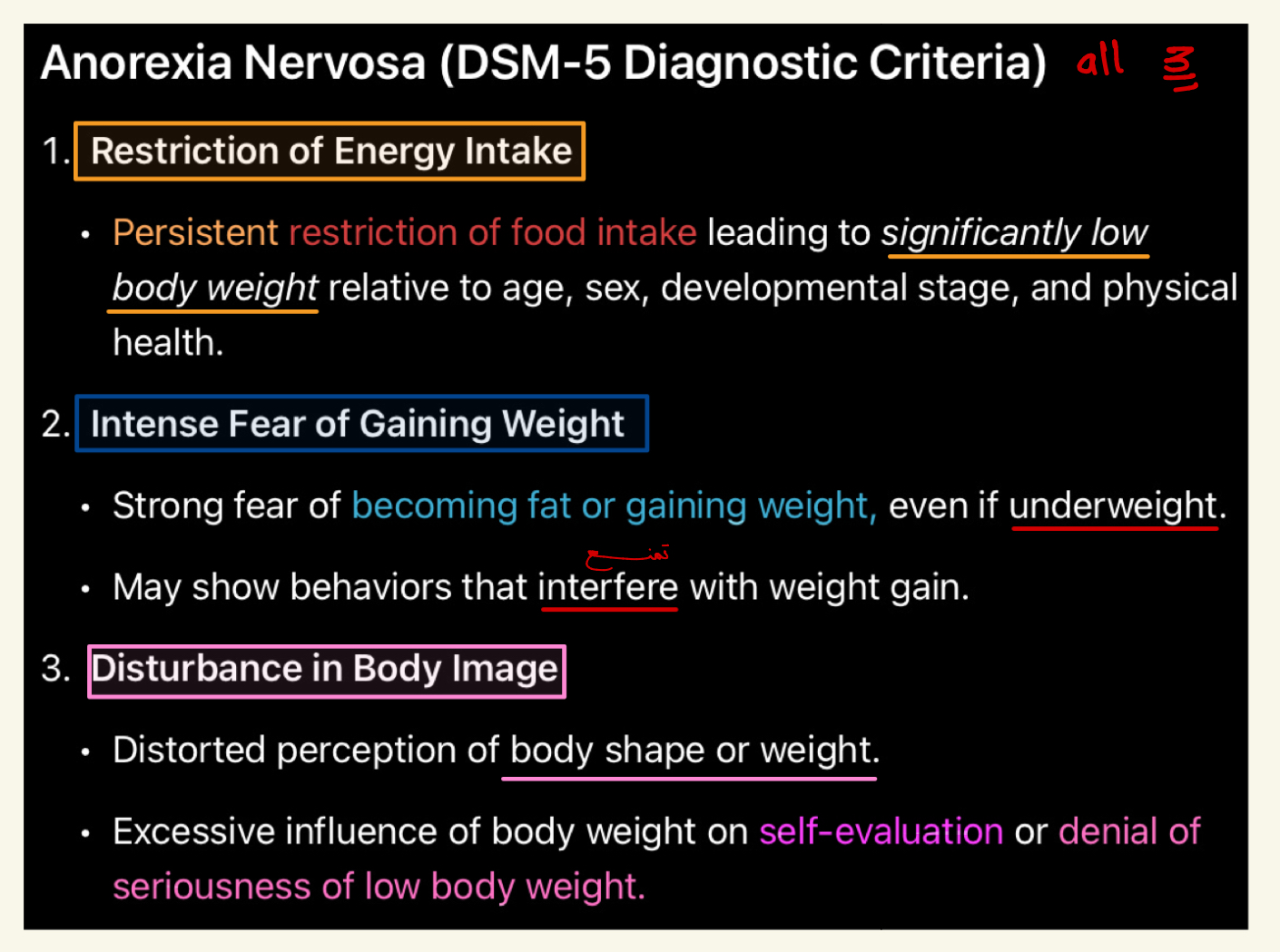
Mention the DSM criteria of anorexia nervosa ?

What are the (health risks) of anorexia nervosa?
Eating large amounts of food (binges) followed by behaviors to get rid of it, such as vomiting, fasting, excessive exercise, or using laxatives.
What is bulimia nervosa?
They often feel guilt, shame, or loss of control.
How do people with bulimia often feel after eating?
True
People with bulimia nervosa their weight may appear normal, but serious health problems can occur if untreated.✅❌

What are the warning signs of bulimia nervosa?
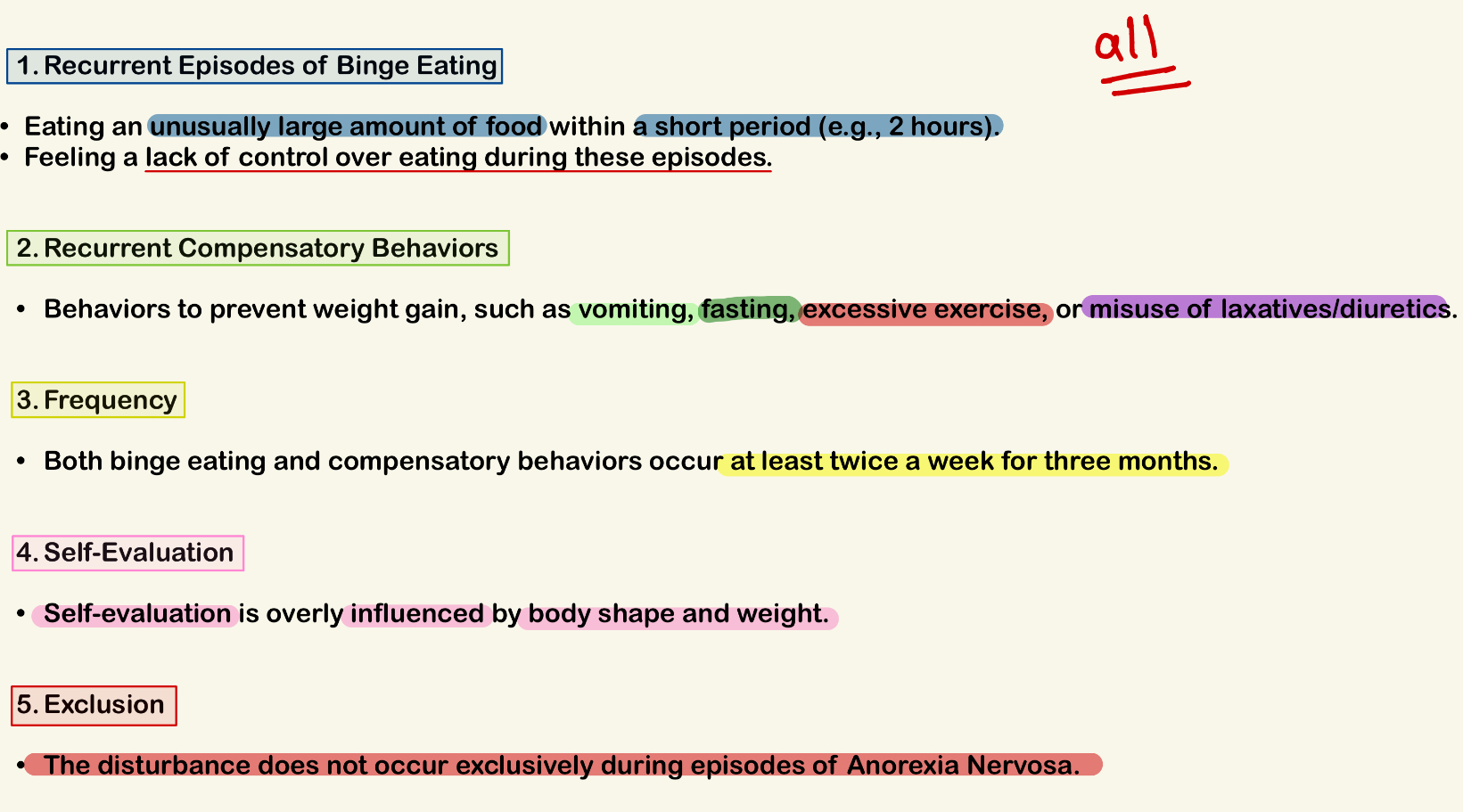
What are DSM-5 criteria for bulimia nervosa?

What are the (health risks) of bulimia nervosa?
where a person eats large amounts of food without control
but Unlike bulimia, the person doesn’t vomit or try to get rid of the food afterward.
They are emotional eaters
What is Binge Eating Disorder?
People with this disorder often feel guilt, shame, or loss of control after eating.
What psychological effects are associated with Binge Eating Disorder?
obesity
diabetes,
emotional stress.
What are the possible physical consequences of Binge Eating Disorder?
All people who binge eat are emotional eaters,
but not all emotional eaters have binge eating disorder.
Is every emotional eater diagnosed with Binge Eating Disorder?

What is the difference between BED & emotional eating?

What are the warning signs of BED?
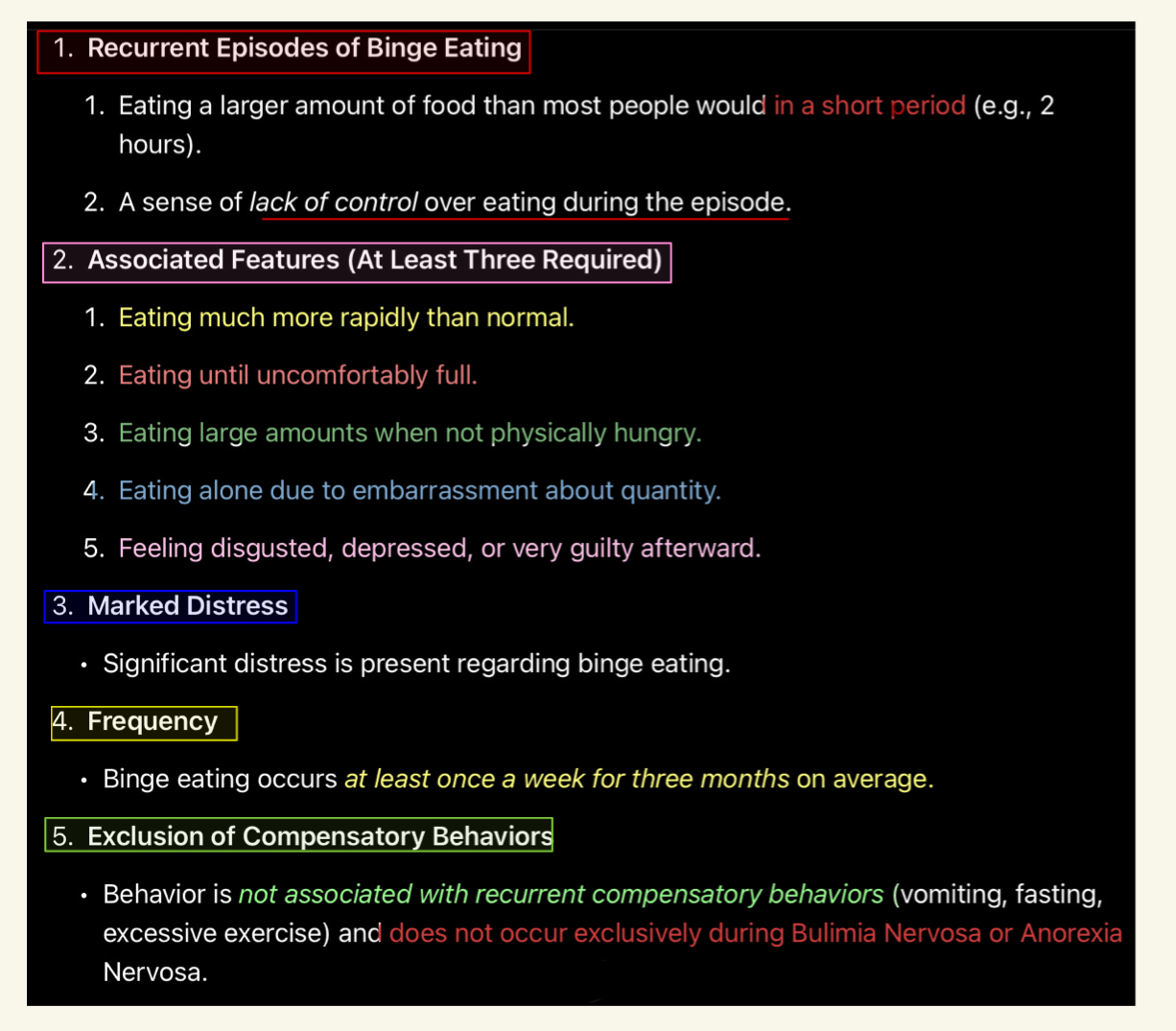
What are DSM-5 criteria for BED?
Obesity: From regularly eating large amounts of food.
High Blood Pressure: Caused by excess weight and poor nutrition.
Heart Disease & Diabetes: Due to high fat and sugar intake.
Joint & Muscle Pain: From carrying extra body weight.
Depression & Low Self-Esteem: Emotional effects from guilt and body dissatisfaction.
Cancer Risks:
Breast (post-menopause)
endometrial cancer.
colon
rectal
liver
pancreatic
kidney
What are the health risks of BED?
Eating disorder behaviors are unhealthy ways of coping with stress, emotions, or low self-esteem. Factors to Consider:
Psychological
Interpersonal
Social/Cultural
biological
Why Do People Develop Eating Disorders?
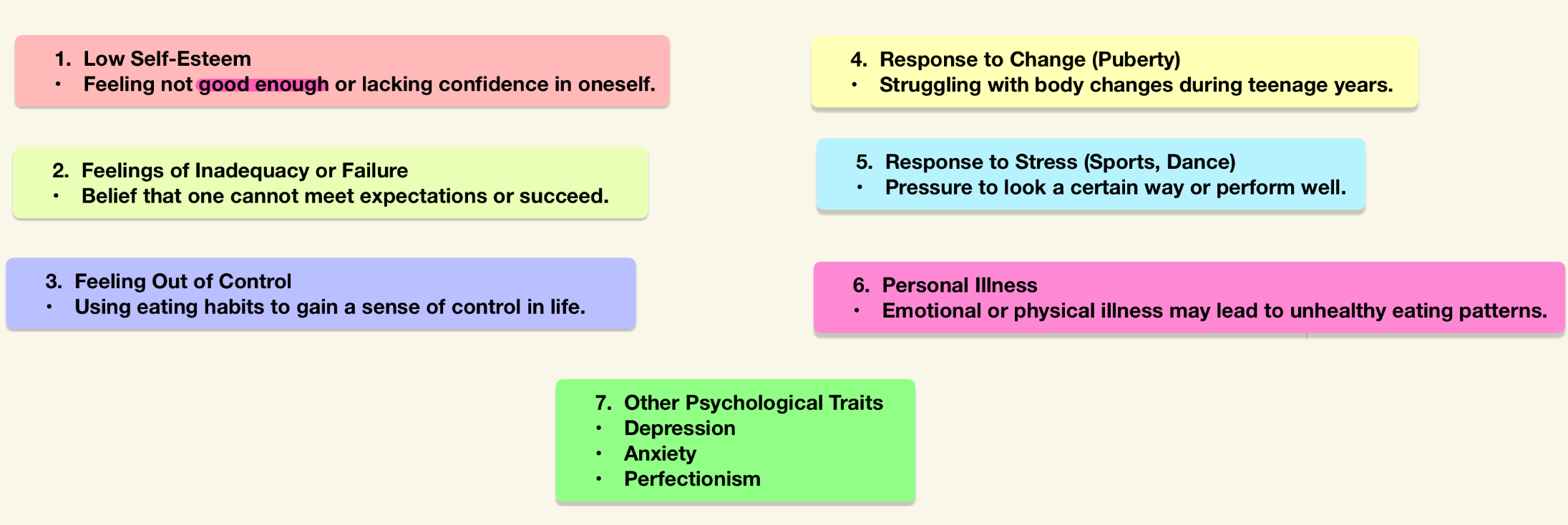
What are the psychological factors that lead to eating disorders
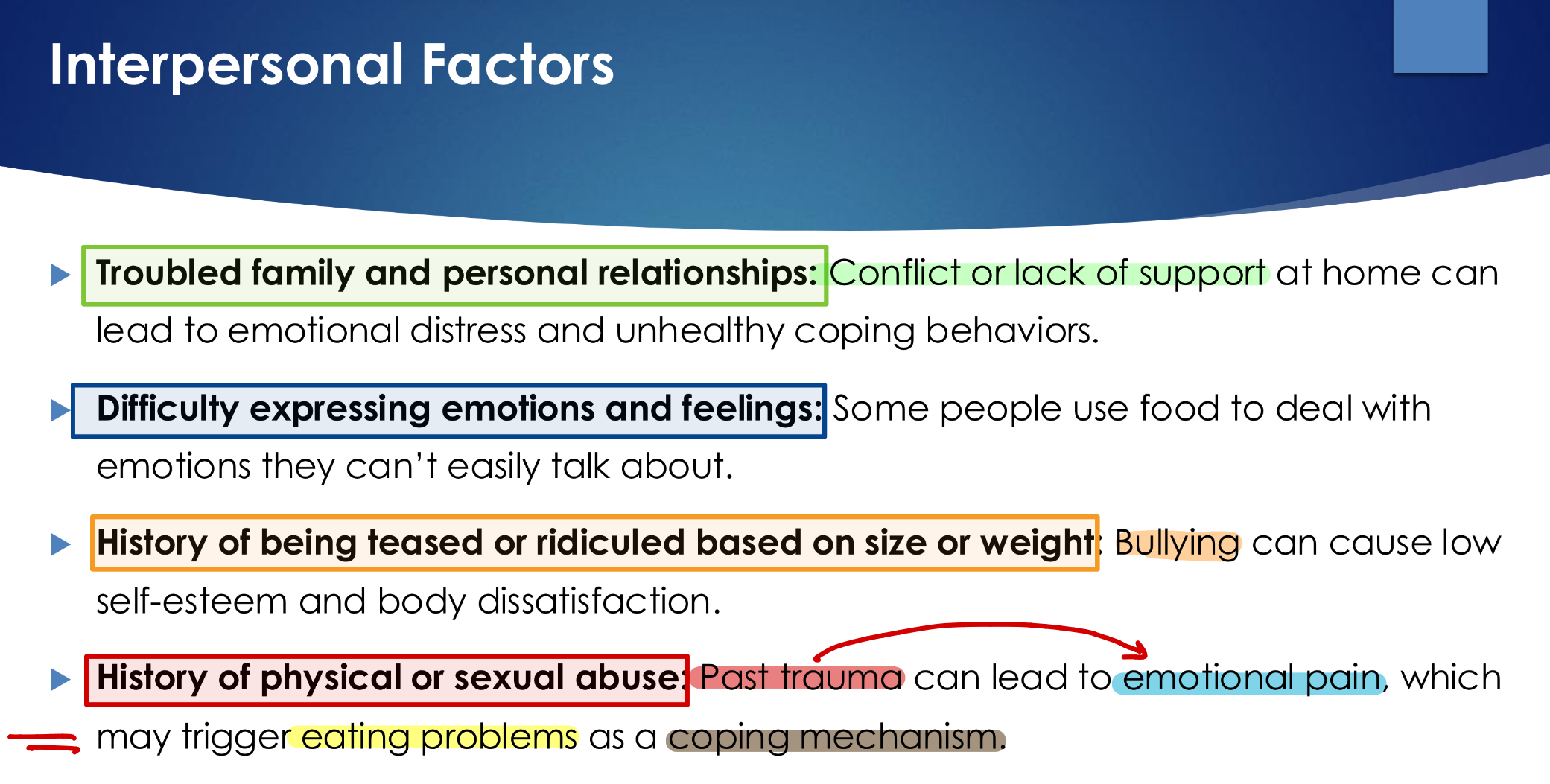
What are the interpersonal factors that lead to eating disorders
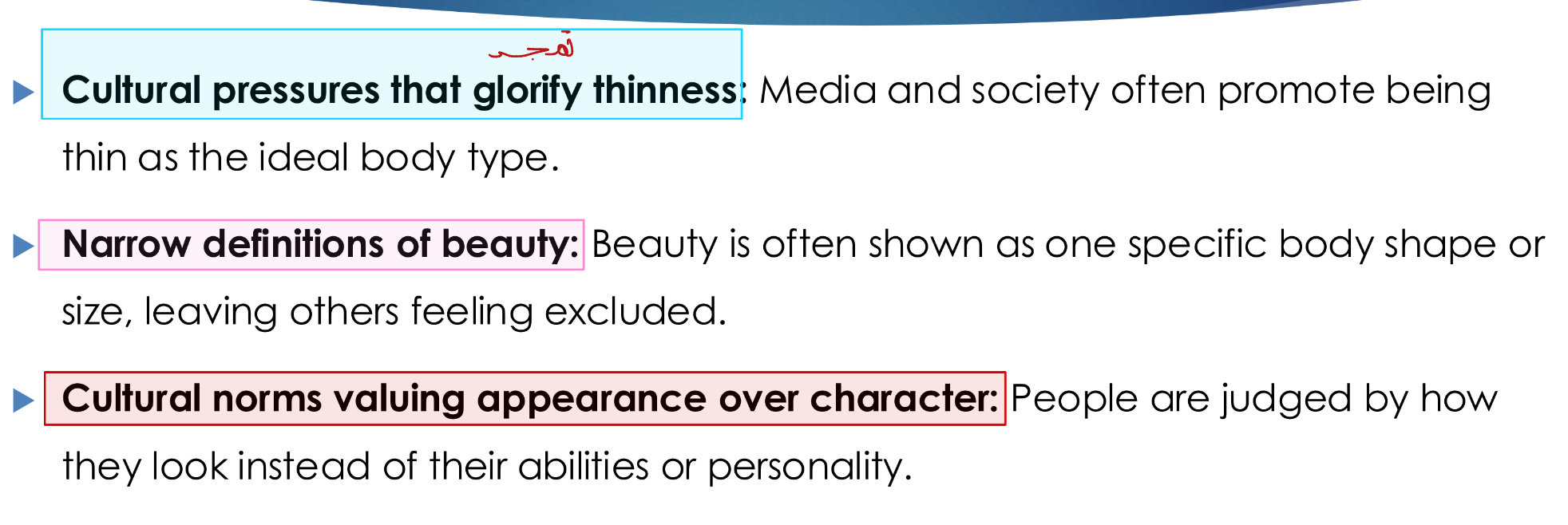
What are the Social and Cultural Factors that lead to ED?
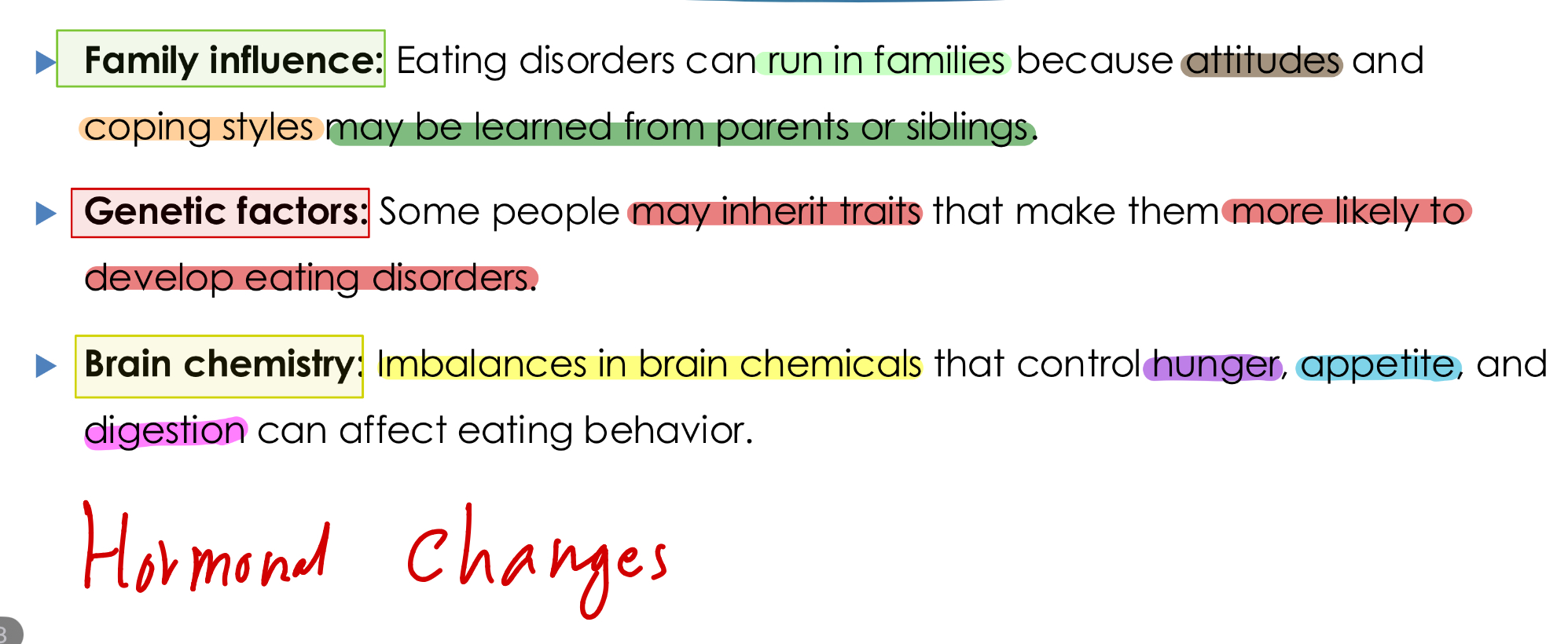
What are the biological factors that can lead to eating disorders?